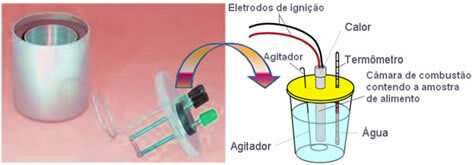By the time of the Renaissance, which took place in the 15th century, experiments began to become more organized and mandatory to prove any theory that emerged. This is because the Renaissance placed more value on the human being, rationalism and emphasized human values rather than spiritual values.
Before that, the widespread idea was Alchemy – in short, a mixture of Chemistry with mysticism and superstitions. At the time of the Renaissance, universities and society in general were still immersed in the ideas of the medieval era.
However, some scholars, such as the physician Theophrastus Bombast von Hohenheim, better known in history as Paracelsus (1493-1541), claimed that Chemistry's purpose was to prepare medicines and not waste time in producing gold, which was one of Alchemy's main objectives.
This new science was called Iatrochemistry, a name originated from the Greek term iatro, which means "doctor”.
Since the father of Paracelsus was a great connoisseur of metallurgy and practiced Alchemy; From an early age, Paracelsus also became an expert in the properties and handling of minerals. Later this knowledge was expanded when he went to work in mines and workshops.
At the age of 14, obstinately – as was his custom – Paracelsus left on foot for Europe in search of knowledge in universities. When he was almost 20 years old, he began to expose his heterodox ideas, as he completely rejected the doctrines of his time.
According to him, a real doctor should go looking for the knowledge of people as “old women godmothers, gypsies, sorcerers, nomadic tribes, old thieves" and learn from them through the experience. And that's what he did. His travels yielded him much popular knowledge, which he was able to apply to his medical practices quite successfully; although, at first, people were wary and distrustful of his unconventional methods.
Do not stop now... There's more after the advertising ;)
The idea of Iatrochemistry was not proposed only by Paracelsus, but he adopted such an idea, preaching that Chemistry had to serve the goals of medicine. Thus, Paracelsus extensively studied various chemical compounds and, to this day, the modern pharmacy remains supplied with these compounds studied by him.
At the time, the dominant idea of bodily health was the “four humors” theory. Although, paracelsus rejected this idea because he believed that the truth lay in Iatrochemistry and that the body should be treated with proper remedies. (For him, the human body consisted of a set of chemical substances that interacted harmoniously). Thus, the disease would be an alteration of this chemical composition, which, therefore, could return to normal, introducing other chemical compounds into the body.
Paracelsus began to make these remedies in his "kitchen", together with his assistant Oporinus, and distributed them to the sick and needy. He then started the drug industry from plant and mineral extracts.
The reason for Paracelsus' death is not known for sure, but it is said that he suffered a serious fall (or someone beat him) and, three days later, on September 24, 1541, he died. This character in the story was certainly crucial for chemistry and medicine, but his life she was marked by contradictions in her opinions and doctrines, as well as by constant agitation and enmities; not counting his constant drinking.
By Jennifer Fogaça
Graduated in Chemistry



